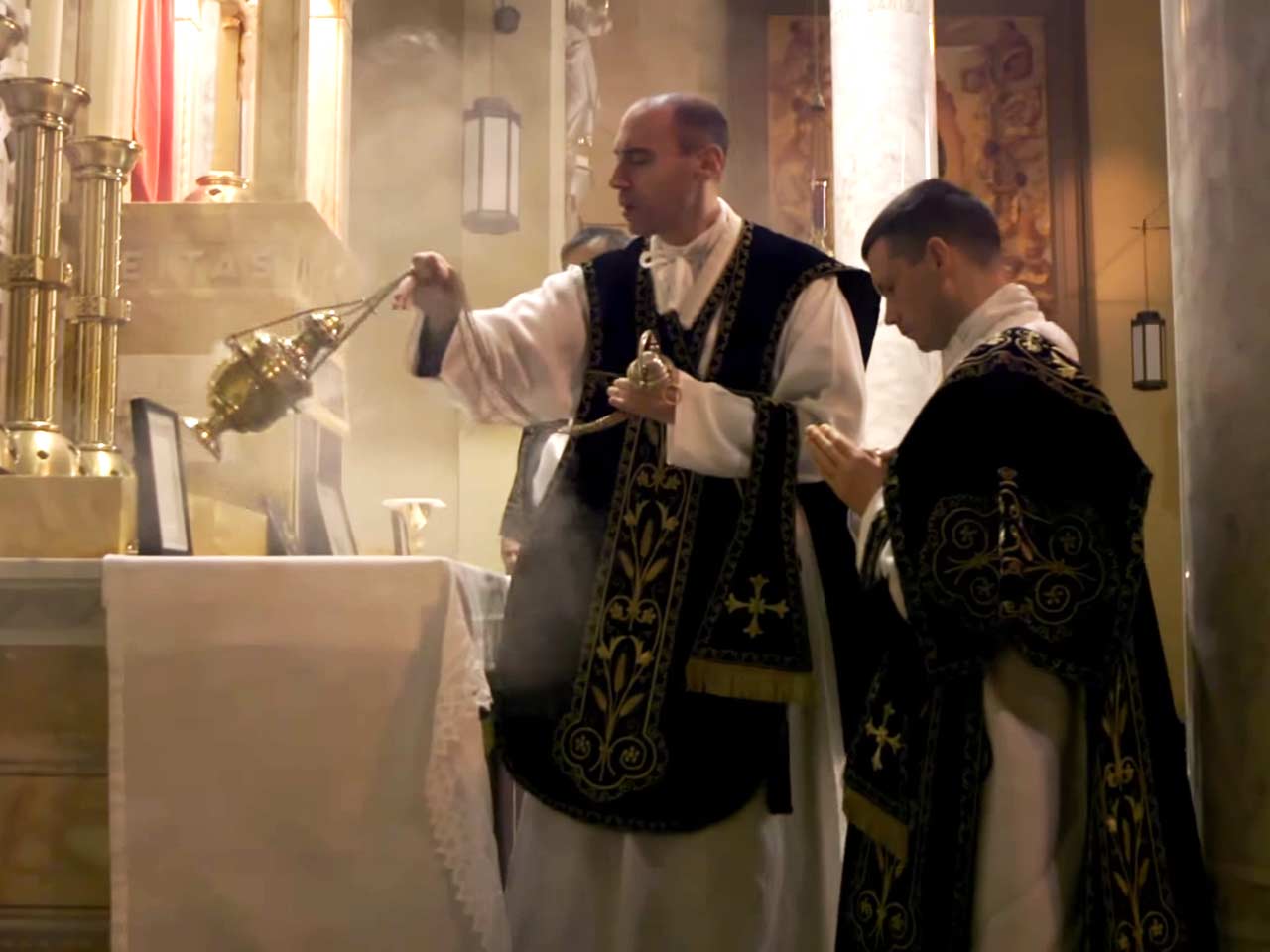While the wicked are confounded, Doomed to flames of woe unbounded, Call me, with Thy saints surrounded.
– from the Dies Irae, sequence of the Requiem Mass
One of the most profound moments of religious experience in my life was the first time I attended a Requiem Mass. For those unfamiliar with the term, the Requiem is the Mass offered, according to the traditional liturgical norms of the Latin Rite, for the dead. They are utilized on several occasions, but most particularly as funeral Masses for the departed.
The occasion was the death of my great uncle “Lewy”. A paratrooper and decorated combat veteran of the Second World War who received a Purple Heart for wounds received at the Battle of the Bulge, Uncle Lewy was something of a mystery. He was my maternal grandfather’s oldest brother, and as I search the recesses of my earliest childhood memories, I find that I recall his kind and distinctive voice and the limp brought on by his war injuries more than I can see his face. A scholar and a recluse who never married, when I was very young, Uncle Lewy disappeared, leaving no forwarding information for the family. I vaguely remember going with my grandparents to the home he left behind one bright, sunny day, religious books and other items stacked along the floor, the remains of a violin left in a milk crate. Many years later, he was eventually identified in a nursing home, the experimental hip replacement he had received in the field after receiving enemy fire finally having decayed to the point of causing an infection, which had led to someone bringing him to receive medical attention. By then, he was already suffering from dementia and associated memory loss. I never saw him again alive.
Uncle Lewy was a deeply pious and devoted Catholic of the old school. His nephew, a Catholic priest who had by then discovered the beauty of the traditional liturgy, offered his funeral Mass — a Requiem. I remember reading the beautiful prayers of that liturgy — truly a work of devout supplication — through tears, thinking to myself, “When I die, this is the Mass I want. Even if I have to put it in my will to make it happen.” Having been to my share of modern Catholic funerals, I was absolutely struck by the profundity of the Requiem’s eschatology — not at all like the hagiographic approach taken today — such as that found in the Offertory:
O Lord Jesus Christ, King of glory, deliver the souls of all the faithful departed from the pains of Hell and from the deep pit: deliver them from the mouth of the lion, that Hell may not swallow them up, and they may not fall into darkness; but may the holy standard-bearer Michael introduce them to the holy light: * Which Thou didst promise of old to Abraham and to his posterity.
V. We offer Thee, O Lord a sacrifice of praise and prayers; do Thou receive them in behalf of those souls whom we commemorate this day: grant them, O Lord, to pass from death to life. Which Thou didst promise of old to Abraham and to his posterity.
Of course, the Dies Irae alone is worth whatever sacrifices one must make to ensure the benefit of a Requiem on the occasion of their death. A more fitting sendoff — both somber and hopeful — one could not hope to find. (You can read the rest of the text of the Requiem Mass here.)
Now, the Priestly Fraternity of St. Peter has collaborated with Demontfort Music on the recording of an album of music for the Requiem Mass. From the Fraternity website:
For this recording, we have chosen the ancient Gregorian chant repertoire for the Mass and Burial of the Dead, commonly known as the Requiem. The reality of death is so vivid to human experience, and the Requiem reflects that reality. While eliciting sentiments of sadness that naturally come with mourning, it all the more inspires hope. The calmness of the chant reveals a spirit of rest or repose, which is what the very word requiem means. It is often said that music is meant to ‘clothe the texts.’
An accompanying video about the making of the album has also been released, and it is as beautiful as it is informative:
The album will be released on May 12, but pre-orders are available now. If you order a CD directly (at a slightly higher cost) from the Fraternity of St. Peter, a portion of the funds will go to supporting their apostolates.
This is a profound and moving liturgy, and while various Requiem Mass compositions by the greatest musical geniuses in history are treasures of the Church, to my mind, nothing compares to the simple and sacred beauty of the Gregorian Chant setting. I’ve already ordered my copy. (I am not associated in any way with this project and get no commission from sales of the album; I just wanted to promote the richness and beauty of the Church’s liturgical tradition for your edification and enjoyment.)


